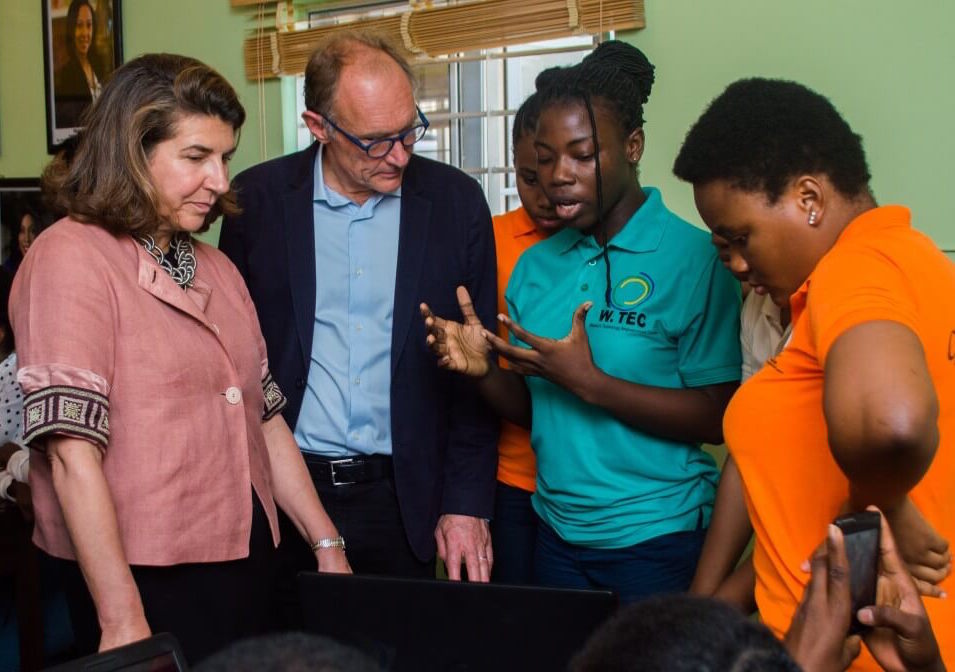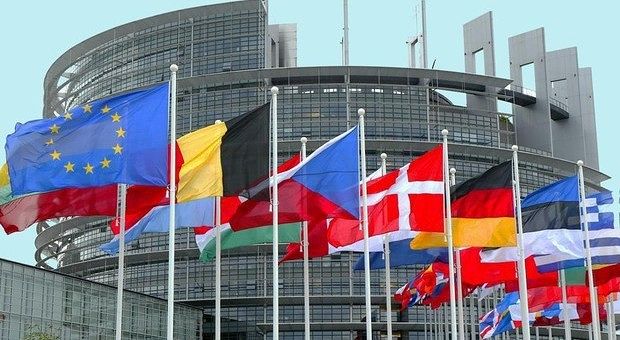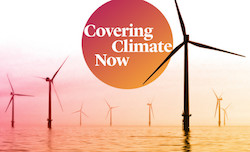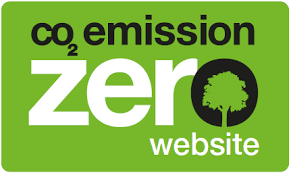Massa Critica
Il creatore del web Tim Berners Lee: occorre agire per l’accesso al web delle donne

Secondo il creatore del web Tim Berners Lee l’epidemia del coronavirus dimostra quanto il web sia utile per l’umanità ed e’ urgente agire per l’accesso al web, anche per le donne. I concetti fanno parte del messaggio di Tim Berners Lee per i 31 anni dalla nascita del web.
Sir Tim Berners Lee scrive: “Il mondo ha fatto importanti progressi sulla parità di genere ma il web ancora non è accessibile alle donne, le discrimina e i governi fanno poco. I diritti delle donne sono diritti umani e sono fondamentali per una società sana, dalla riduzione della povertà e delle malattie al miglioramento dell’istruzione e della crescita economica”,
Berners Lee individua tre aree particolarmente preoccupanti. La prima è il divario tra uomini e donne sulle possibilità di accesso all’online (le prime hanno il 21% in meno di probabilità rispetto agli uomini, che aumentano al 52% nei paesi meno sviluppati). In secondo luogo, spiega Tim Berners Lee, il web non è abbastanza sicuro tanto che “una nuova ricerca della Web Foundation e della World Association of Girl Guides and Girl Scout ha scoperto che oltre la metà delle giovani donne intervistate ha subito violenze online, tra cui molestie sessuali, invio di messaggi di minaccia o condivisione di immagini private senza consenso e l’84% pensa che il problema stia peggiorando”.
Infine, per Sir Tim, restano nascoste altre forme di discriminazione online contro le donne. Ad esempio, troppo spesso gli algoritmi riproducono e persino approfondiscono le disuguaglianze esistenti e l’azione dei governi e delle imprese è troppo lenta e insufficiente.
Il messaggio arriva ad un anno dal lancio da parte di Tim Berners Lee del Contratto per il web, un progetto di azione globale per protegge Internet.
Il messaggio di Tim Bernes Lee
When the world celebrated the web’s 30th birthday a year ago, we were reminded of the incredible things it has enabled — and all that we stand to lose if we don’t fight for it. I asked everyone to join together and do what they can to make sure the next 30 years of the web is even greater than the last.
A year later, with the help of activists, academics, policymakers and business people across the world, the Web Foundation has built and published a Contract for the Web— endorsed by companies, institutions and thousands of organisations and individuals — designed to protect and shape a web that is safe, empowering and available to all.
It’s becoming increasingly clear that we cannot achieve the aims of this Contract unless we address a dangerous trend we are hearing more and more about from our partners globally and working on the frontline: the web is not working for women and girls.
The world has made important progress on gender equality thanks to the unceasing drive of committed champions everywhere. But I am seriously concerned that online harms facing women and girls — especially those of colour, from LGBTQ+ communities and other marginalised groups — threaten that progress.
This should concern us all. Women’s rights are human rights and are fundamental to a healthy society, from reducing poverty and disease to improving education and economic growth.
And so it’s up to all of us to make the web work for everyone. That requires the attention of all those who shape technology, from CEOs and engineers to academics and public officials. That’s why I’m adding my voice alongside thousands of others calling for action.
There are three key areas that are particularly worrying.
First, a majority of the world’s women are still not connected to the internet, largely because they can’t afford it, or have no access to the technology they need or the skills to use it. Men remain 21% more likely to be online than women, rising to 52% in the world’s least developed countries. This gap reinforces existing inequalities and prevents millions from using the web to learn, earn and make their voice heard.
Second, for many who are online, the web is simply not safe enough. New research by the Web Foundation and the World Association of Girl Guides and Girl Scouts found over half of young women surveyed have experienced violence online — including being sexually harassed, sent threatening messages or having their private images shared without consent. 84% think the problem is getting worse.
Such abuse forces women out of jobs and causes girls to skip school, it damages relationships and leads to tremendous distress. Relentless harassment silences women and deprives the world of their opinions and ideas, with female journalists and politicians pushed off social media and bullied out of office.
And it risks the tremendous opportunities that digital technology offers. A young woman from a technology skills centre I visited in Nigeria runs a catering business on social media. The same platform that allows her to reach customers also exposes her to daily bombardment of sexual harassment from strangers.
Third, other forms of online discrimination against women remain hidden. Artificial intelligence systems are increasingly used to judge our abilities and define our opportunities. If properly designed, they could make the world fairer. But too often, algorithms reproduce and even deepen existing inequalities. In 2018, a major automated recruitment tool had to be scrapped because it systematically under-selected women due to being trained on historical data where roles were filled by men.
Many companies are working hard to tackle this discrimination. But unless they dedicate resources and diversify teams to mitigate bias, they risk expanding discrimination at a speed and scale never seen before.
Despite the growing crisis of gender inequality online, action by governments and companies has been too slow and too small.
The coronavirus outbreak demonstrates just how urgently we need action. When offices and schools close, the web is a lifeline that allows us to keep working, educating our children and reading information vital to keeping us safe and healthy. A world where so many women and girls are deprived of these basics is completely unacceptable. When we need it more than ever, the web has to work for everyone.
2020 is a year of opportunity for change. This year marks 25 years since 189 countries agreed an ambitious global plan to empower women, and we’re just ten years from the global deadline to reach gender equality. The issue will have the attention of global decision-makers, including at three major meetings hosted by the UN that will bring companies, governments and civil society together to set out actions they will take to empower women. Making the web work for women, girls and other marginalised groups — and therefore for all of us — must be at the heart of those commitments.
Tackling online gender inequality will be a core priority for the Web Foundation through 2020 and beyond. We’ll continue to research online harms and policy gaps, to work to close the gender digital divide, and to advocate for policies that empower women. We’ll do this alongside partners in our Women’s Rights Online network, such as IT for Change in India, the Women of Uganda Network and Sulá Batsú in Costa Rica.
We’ll also forge new partnerships to campaign against online abuse, and work with companies, governments and civil society on innovative policy and product design. And we’ll work with those who have backed the Contract for the Web to ensure they make good on their commitments to make the internet available, empowering and safe for everyone — particularly women and other systematically excluded groups.
In 2020, we must channel the ambitious, collaborative spirit behind the Contract for the Web to tackle the digital gender divide and online harms against women and girls:
- Prioritise the problem: 2020 must be the year governments and companies tackle online harms against women as a top priority.
- Provide better data: Companies and governments must tackle the data void around online violence by systematically recording and publishing data on what women experience online.
- Embed ‘gender equality by design’: Governments and companies must create all products, policies, and services based on data and feedback from women of all backgrounds.
- Build legal protections: Governments must develop laws that hold perpetrators of online gender-based violence to account, and resource law enforcement to respond and prosecute when those laws are violated.
- Be active bystanders: We must all speak up when we see harms against women and girls online.
The call for action is compelling and urgent. By answering it together, we can create a stronger, better web; one that empowers, fosters equality, and serves each and every one of us.
![]() Ricevi le nostre ultime notizie da Google News - SEGUICI
Ricevi le nostre ultime notizie da Google News - SEGUICI
![]() Massa Critica è una piattaforma di informazione, partecipazione e attivazione dei cittadini per favorire l'attivazione di quanti condividono aspirazioni nuove e innovative su sostenibilità , tecnologia , innovazione , startup , cibo , social innovation, salute.
Massa Critica è una piattaforma di informazione, partecipazione e attivazione dei cittadini per favorire l'attivazione di quanti condividono aspirazioni nuove e innovative su sostenibilità , tecnologia , innovazione , startup , cibo , social innovation, salute.
.Vuoi saperne di più su Massa Critica ? Ecco la nostra presentazione.
Ti è piaciuto Massa Critica ? Bene! Iscriviti alla nostra newsletter. e al nostro canale Telegram.
Se ti piace il nostro lavoro vai alla nostra pagina su Facebook e clicca su "Like".
Se preferisci puoi anche seguirci via Twitter , via Instagram e via Youtube.
Per sostenerci abbiamo bisogno del vostro contributo, per questo vi chiediamo di supportarci concretamente attraverso Paypal o Satispay. Grazie per il vostro contributo e per la vostra fiducia!
Donazione con Paypal o carta di credito
Donazione con Satispay


Massa Critica
E’ partito da Torino su un Antonov HALO la struttura primaria del modulo spaziale che orbiterà intorno alla Luna realizzato da Thales Aerospace

A Caselle è atterrato un enorme Antonov An-124 Ruslan , il piú grande aereo al mondo, per caricare HALO che ha lasciato lo stabilimento Thales Aerospace di Torino, diretto alle strutture di Northrop Grumman a Gilbert, Arizona. La produzione della struttura primaria di HALO è fondamentale dato che sarà il primo elemento della futura stazione spaziale Gateway che orbiterà intorno alla Luna I lavori sull’avamposto abitativo e logistico continueranno negli Stati Uniti.
HALO (Habitation and Logistics Outpost) è la struttura primaria del modulo spaziale pressurizzato che fornirà agli astronauti che prenderanno parte al programma internazionale Artemis uno spazio per vivere, lavorare, condurre ricerche scientifiche e prepararsi alle missioni sulla superficie lunare. Il suo lancio è previsto insieme all’elemento dell’alimentazione e propulsione e sarà il primo habitat per gli astronauti in visita al Gateway.
Thales Alenia Space in Italia è responsabile della progettazione e della produzione della struttura primaria di HALO, cioè il modulo pressurizzato, dei portelli, delle strutture secondarie esterne, del controllo della pressione del modulo e del vestibolo, dei passaggi e delle condutture elettriche e fluidiche, di parte dei riscaldatori, del sistema di protezione dai meteoroidi, oltre alla struttura che interfaccia con i sistemi di attracco della NASA.
![]() Ricevi le nostre ultime notizie da Google News - SEGUICI
Ricevi le nostre ultime notizie da Google News - SEGUICI
![]() Massa Critica è una piattaforma di informazione, partecipazione e attivazione dei cittadini per favorire l'attivazione di quanti condividono aspirazioni nuove e innovative su sostenibilità , tecnologia , innovazione , startup , cibo , social innovation, salute.
Massa Critica è una piattaforma di informazione, partecipazione e attivazione dei cittadini per favorire l'attivazione di quanti condividono aspirazioni nuove e innovative su sostenibilità , tecnologia , innovazione , startup , cibo , social innovation, salute.
.Vuoi saperne di più su Massa Critica ? Ecco la nostra presentazione.
Ti è piaciuto Massa Critica ? Bene! Iscriviti alla nostra newsletter. e al nostro canale Telegram.
Se ti piace il nostro lavoro vai alla nostra pagina su Facebook e clicca su "Like".
Se preferisci puoi anche seguirci via Twitter , via Instagram e via Youtube.
Per sostenerci abbiamo bisogno del vostro contributo, per questo vi chiediamo di supportarci concretamente attraverso Paypal o Satispay. Grazie per il vostro contributo e per la vostra fiducia!
Donazione con Paypal o carta di credito
Donazione con Satispay

Massa Critica
La Commissione europea raccomanda alle famiglie un kit di emergenza di 72 ore per eventuali crisi

La Commissione europea indica alle famiglie di essere preparate a sopravvivere 72 ore senza aiuti esterni in caso di aggressioni, disastri naturali, pandemie o attacchi informatici. E’ quanto riportato dal quotidiano spagnolo El Pais che ha avuto accesso ad una bozza della Strategia di Preparazione dell’Unione. Riserve d’acqua, cibo, materiale per riscaldarsi, medicine e batterie sono tra i materiali essenziali per affrontare questo tipo di crisi , indicate nelle guide che alcuni Paesi del Nord Europa hanno già consegnato alla popolazione per preparsi ad ipotetiche emergenze o conflitti. (altro…)
![]() Ricevi le nostre ultime notizie da Google News - SEGUICI
Ricevi le nostre ultime notizie da Google News - SEGUICI
![]() Massa Critica è una piattaforma di informazione, partecipazione e attivazione dei cittadini per favorire l'attivazione di quanti condividono aspirazioni nuove e innovative su sostenibilità , tecnologia , innovazione , startup , cibo , social innovation, salute.
Massa Critica è una piattaforma di informazione, partecipazione e attivazione dei cittadini per favorire l'attivazione di quanti condividono aspirazioni nuove e innovative su sostenibilità , tecnologia , innovazione , startup , cibo , social innovation, salute.
.Vuoi saperne di più su Massa Critica ? Ecco la nostra presentazione.
Ti è piaciuto Massa Critica ? Bene! Iscriviti alla nostra newsletter. e al nostro canale Telegram.
Se ti piace il nostro lavoro vai alla nostra pagina su Facebook e clicca su "Like".
Se preferisci puoi anche seguirci via Twitter , via Instagram e via Youtube.
Per sostenerci abbiamo bisogno del vostro contributo, per questo vi chiediamo di supportarci concretamente attraverso Paypal o Satispay. Grazie per il vostro contributo e per la vostra fiducia!
Donazione con Paypal o carta di credito
Donazione con Satispay

Massa Critica
Servizio VPN, tutto ciò che devi sapere per difendere i tuoi dati in rete

La sicurezza digitale è diventata un elemento fondamentale nella nostra vita quotidiana, considerando l’aumento delle attività online e la diffusione di minacce informatiche sempre più sofisticate. In questo articolo, esploreremo come proteggere la tua privacy e salvaguardare i tuoi dispositivi attraverso l’uso di un servizio VPN e di un antivirus per Windows, con suggerimenti e considerazioni pratiche per migliorare la cybersicurezza personale e professionale.
La nuova frontiera della protezione online
Viviamo in un’epoca in cui la protezione online rappresenta una vera e propria sfida: phishing, ransomware e furto di dati sono solo alcune delle problematiche che gli utenti affrontano ogni giorno. Diventa quindi essenziale adottare soluzioni complete e avanzate per tutelare informazioni sensibili e attività in rete.
Cos’è un servizio VPN e perché è indispensabile
Un servizio VPN garantisce la crittografia del traffico internet, offrendoti un livello di sicurezza aggiuntivo quando navighi online. Attraverso un sistema di tunneling crittografato, i tuoi dati vengono protetti da occhi indiscreti e malintenzionati, rendendo più difficile il tracciamento della tua posizione e delle tue abitudini di navigazione.
Scopri di più su come un servizio VPN può garantirti la massima privacy e sicurezza, soprattutto quando ti connetti a reti Wi-Fi pubbliche o poco affidabili. Inoltre, una VPN ti consente di accedere a contenuti geograficamente bloccati, offrendo una maggiore libertà digitale.
L’importanza di un antivirus per Windows
Per completare la tua strategia di cybersicurezza, è fondamentale dotare il tuo computer di un antivirus per Windows affidabile, in grado di riconoscere e bloccare virus, malware e altre minacce informatiche. Avere un sistema di protezione costantemente aggiornato è il primo passo per prevenire accessi non autorizzati e proteggere i tuoi file più preziosi.
Scegliere un antivirus per Windows dalle prestazioni elevate ti permette di:
- Analizzare in tempo reale i file scaricati;
- Bloccare tentativi di phishing via e-mail o siti fraudolenti;
- Eliminare software dannosi prima che possano infettare il tuo dispositivo;
- Effettuare scansioni automatiche e regolari per un controllo costante.
Consigli pratici per una protezione completa
Oltre all’utilizzo di un servizio VPN e di un antivirus per Windows, è bene adottare alcune buone pratiche di sicurezza informatica:
- Aggiornare regolarmente il sistema operativo e i programmi installati;
- Utilizzare password complesse e uniche, abbinando l’autenticazione a due fattori dove possibile;
- Prestare attenzione ai file allegati e ai link ricevuti via e-mail, specialmente da fonti sconosciute;
- Mantenere abilitato il firewall per bloccare tentativi di accesso non autorizzati.
La protezione dei dati personali e la salvaguardia dei dispositivi richiedono un approccio a 360 gradi, che includa sia un servizio VPN efficace sia un antivirus per Windows di alta qualità.
Investire in tecnologie di ultima generazione e adottare comportamenti responsabili online rappresenta la strategia vincente per difendersi dalle minacce informatiche e preservare la propria privacy digitale.
![]() Ricevi le nostre ultime notizie da Google News - SEGUICI
Ricevi le nostre ultime notizie da Google News - SEGUICI
![]() Massa Critica è una piattaforma di informazione, partecipazione e attivazione dei cittadini per favorire l'attivazione di quanti condividono aspirazioni nuove e innovative su sostenibilità , tecnologia , innovazione , startup , cibo , social innovation, salute.
Massa Critica è una piattaforma di informazione, partecipazione e attivazione dei cittadini per favorire l'attivazione di quanti condividono aspirazioni nuove e innovative su sostenibilità , tecnologia , innovazione , startup , cibo , social innovation, salute.
.Vuoi saperne di più su Massa Critica ? Ecco la nostra presentazione.
Ti è piaciuto Massa Critica ? Bene! Iscriviti alla nostra newsletter. e al nostro canale Telegram.
Se ti piace il nostro lavoro vai alla nostra pagina su Facebook e clicca su "Like".
Se preferisci puoi anche seguirci via Twitter , via Instagram e via Youtube.
Per sostenerci abbiamo bisogno del vostro contributo, per questo vi chiediamo di supportarci concretamente attraverso Paypal o Satispay. Grazie per il vostro contributo e per la vostra fiducia!
Donazione con Paypal o carta di credito
Donazione con Satispay










